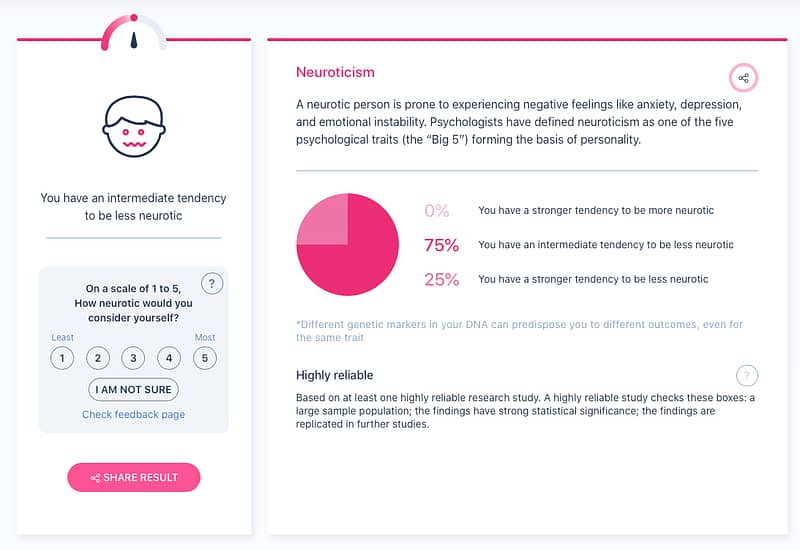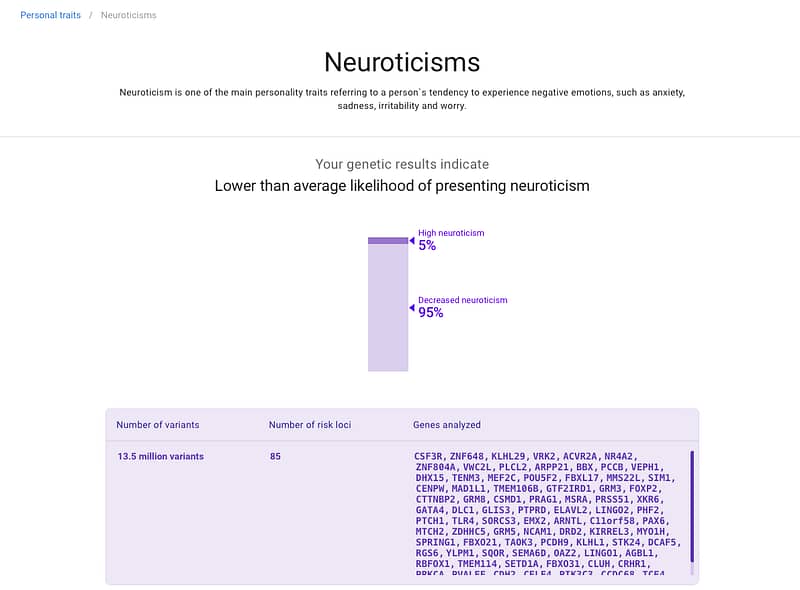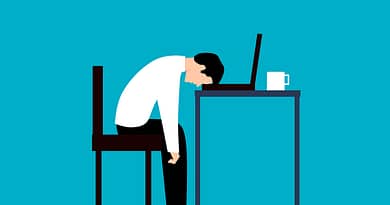Why You Procrastinate: 7 Painful Secrets Holding You Back
Stuck in a cycle of doom-scrolling, avoiding important tasks, and feeling detached from reality? Procrastination is a common struggle, but the reasons behind it are often more complex than self-blame. In this article, we explore 7 key causes of procrastination. Skip intro
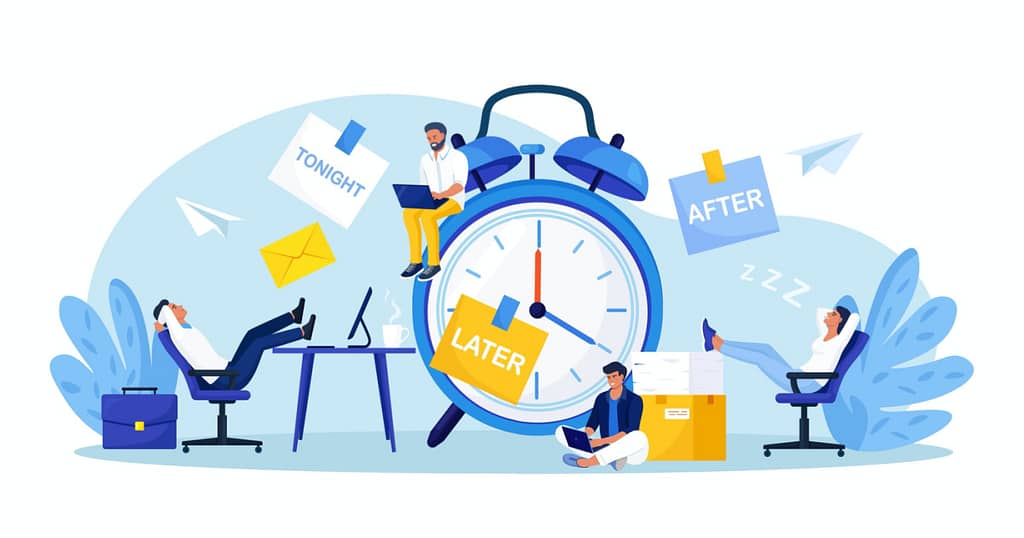
Table of Contents
What is Procrastination?
Well, as Socrates and Aristotle said, “it’s the state of acting against your better judgement”. They even had a term for this state, they called it Akrasia.
It’s when you delay an important task, and replace it with a less urgent, easy, and sometimes even trivial activity.
It’s the state of acting against your better judgement.
And commonly, we will find justifications for carrying out the less important task.
Disclosure
As an Amazon Associate and Mindvalley Affiliate, I earn from qualifying purchases. Some of the links below are affiliate links, meaning I earn a small commission if you purchase through them—at no extra cost to you. I only recommend products or courses I personally rate or think you’ll love!
Am I Just Lazy?
In case you’re worrying that you’re lazy, don’t. You’re not. Well—maybe.
It depends on how bad you feel about not doing the task that you are delaying.
If it’s driving you crazy and giving you anxiety, no matter how bad you’re trying to push it back into your subconscious mind—it’s likely you’re just a good ol’ regular everyday procrastinator.
See, those who are lazy do not stress about the incompletion of an activity. Rather, they experience apathy. Meaning, they just don’t really give a toss.
I will assume since you are here reading this article, you are likely dealing with procrastination and looking for ways to hack it.
What’s the biggest differences between people who push through procrastination and those who don’t?
They’ve trained themselves to act, even when they don’t feel like it. This is what high performers do instinctively—and what The Habit of Ferocity teaches. It’s about building an automatic response to resistance, so instead of debating whether to take action, you just move. Because when taking action becomes a habit, procrastination doesn’t stand a chance.
Causes
1. Short VS. Long-Term Gratification
Unfortunately, we’re wired to seek short-term pleasure and instant gratification. Our primitive lizard brain, which prioritises instant rewards for the purpose of survival, emerged over 550 million years ago.[1]

In contrast, humans, with their “well-developed” prefrontal cortex that weighs long-term goals, appeared circa 300,000 years ago.[2]
Which means our rational brain has only been around for about 0.06% of the time brains have existed at all!
This mismatch between our primal and brand-new rational brain sets up an internal battle, where we procrastinate on higher goals in exchange for quick dopamine hits.
To top that off, seems like we’re pretty darn disconnected from our future selves:
One brain imaging study revealed that when participants were asked to envision their future selves, the same brain areas activated as when they were asked to think of strangers.[3]
This disconnect to our future selves might partially explain why procrastination defeats us when working towards long-term trade-offs.
But what if you could train your brain to prioritise long-term success naturally?
That’s where Super Productivity comes in. Instead of relying on brute force willpower, this Mindvalley course rewires your approach to work, shifting focus away from distractions and towards what actually moves the needle. By leveraging brain-based strategies, you learn to beat procrastination without burnout—so deep focus and efficiency become second nature.
2. Bad Role Models
There’s a chance that many of the habits that you hate so much about yourself, including procrastination, can be attributed to your parents.

When children are raised in environments where they constantly observe task and emotion avoidance, there’s a good chance they’ll internalise those poor coping skills and become professional procrastinators themselves.
Firstly, we tend to unconsciously model behaviours from our parents (or primary caretakers)—from picking up simple habits, such as nicotine use and food preferences, to more complex ones, such as relationship dynamics, how we manage our finances, and how we fare in conflict.
Secondly, there appears to be a genetic component to procrastination. One study demonstrated that procrastination shows 46% heritability.[4]
That is, parents who show high tendencies towards procrastination have nearly a 1-in-2 chance to have children who also procrastinate.
However, your genetics and past experiences shouldn’t define you, when they can be consciously shaped. This is where rewiring self-beliefs makes a huge difference.
Looking to rewire your self-beliefs to beat procrastination?
Uncompromised Life by Marisa Peer explores how past experiences shape subconscious blocks and offers techniques to overcome self-sabotage, helping you step into a more confident and action-oriented mindset.
3. Unresolved Trauma
Do you have a painful memory that still stings when recalled? Perhaps a comment from a teacher or family member that cut especially deep and stuck with you over the years?

If the answer is a resounding “Yes,” there’s a chance your procrastination tendencies are rooted in unresolved trauma.
Studies demonstrate that those who experience trauma will sacrifice future rewards to avoid potential threats.
Moreover, the more traumatised one perceives themselves to be, the more likely they’ll avoid their higher goals and procrastinate.[5]
Therefore, the story we tell ourselves about our past and the ability to reframe negative experiences in a positive light, might just make all the difference to your overall productivity levels.
Unresolved trauma can manifest subtly through unhealthy coping mechanisms.
For instance, we might unwittingly stall on tasks that dredge up feelings linked to past suffering and switch to an addictive activity that gives us quick relief.
Such as, compulsively scrolling on our phone, switching on our favourite TV series, or reaching for the next sip, bite, or toke.
Ultimately, draining mental energy needed for productivity, persistence, and following through with chores and activities.
What if breaking free from these subconscious cycles is possible?
Energy Medicine by Donna Eden teaches how to realign your body’s natural energy flow, helping you release emotional baggage and restore the vitality needed to take action on your goals.
4. Affective Forecasting
Have you ever procrastinated a task, believing future-you will be far more likely to complete it?

Yet, when tomorrow comes, future-you struggles just as much and delays it once again?
Affective forecasting (also known as emotional forecasting) occurs when you envision a future version of yourself as being far more motivated and equipped to handle a task.
However, affective forecasting rarely works. Instead, it traps you in a negative emotional cycle, reducing the likelihood of following through with the task.
Making even simple tasks seem more and more monumental with each delay.
Studies confirm that individuals who rely on affective forecasting rarely get the task done “next time.” Rather, they consistently overestimate their future motivation levels and continue to procrastinate—again, and again, and again.[6]
Looking to overcome these negative emotional cycles?
Breaking free from these thought-patterns requires a shift in how you perceive motivation and action. Be Extraordinary by Vishen Lakhiani challenges your outdated thinking patterns, helping you develop a mindset where action comes before motivation—rather than the other way around.
5. Inability to Regulate Emotions
When we procrastinate tasks, it’s rarely because of the actual activity at hand.
More often, it’s due to an inability to regulate our emotions around that task.

Usually, a simple activity, such as taking out the trash, is not the issue. It’s the emotions it provokes before it even starts.
For instance, anxiety because neighbours might see you. Or a preconceived idea that the task is too difficult. Maybe, it’s just cold outside. Yet, once the task is completed, it’s rarely as daunting as anticipated.
In hindsight, we can often see that the task wasn’t the real challenge. Instead, it was our lack of emotional regulation around it. And most importantly, the intrusive thoughts that created the avoidant behaviour.
Thankfully, overcoming procrastination-inducing emotions could be as simple as understanding and embracing them.
One study found that college students with impulsive tendencies were far more likely to procrastinate when they also lacked acceptance or clarity of their emotions.
Interestingly, mere awareness of emotions (I know I have anxiety) didn’t significantly reduce procrastination.[7]
However, the ability to accept emotions (I accept this gives me anxiety), manage it (I will use a breathing technique to calm down), and understand their origins (I have anxiety, because I have an irrational fear that stems from…) did make a significant difference.
Training your mind to shift from avoidance to control can be a game-changer.
The Silva Ultramind System teaches techniques that enhance emotional intelligence, rewire subconscious patterns, and develop the mental discipline needed to overcome procrastination at its root.
6. Personality Traits
Sometimes, procrastination tendencies may simply be down to your personality traits.
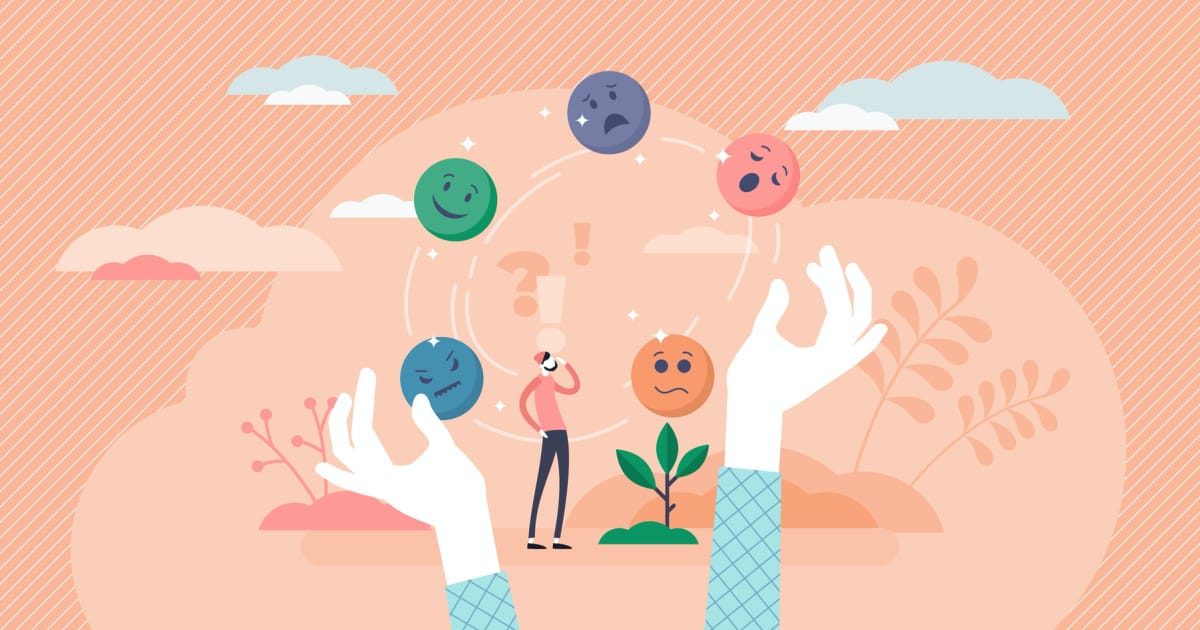
Research shows a clear link between personality traits and procrastination tendencies. Specifically, traits such as Neuroticism and Low Conscientiousness seem to have the strongest relationship with procrastination.[8]
The Big Five Test is commonly used to assess these personality traits.
It measures five key dimensions: Openness, Conscientiousness, Extroversion, Agreeableness, and Neuroticism—best remembered by its acronym OCEAN.
These personality traits have a strong genetic component, which websites like www.tellmegen.com or genomelink.io include in their DNA analysis packages.
Based on these tests, you can have few or many (currently known) genes that code for Neuroticism. Similarly, your genetic composition might code for either high or low levels of Conscientiousness.
Unsurprisingly, individuals who score lower in Neuroticism and higher in Conscientiousness are less likely to procrastinate.
However, results can vary (as seen above) depending on which genetic studies the company uses to support their claims.
Do traits like Neuroticism or Low Conscientiousness contribute to your procrastination?
Understanding your personality traits is the first step to working with them instead of against them. Lifebook Online by Mindvalley takes a deep dive into personal identity, helping you gain clarity on your strengths and limitations. This course provides a structured approach to designing a lifestyle that naturally supports low productivity and discipline.
7. Paradox of Choice
Setting priorities in today’s world is hard. As we juggle career goals, family life, social life, and personal ambitions.
All whilst attempting to maintain a healthy and balanced lifestyle. With only 24 hours given in a day
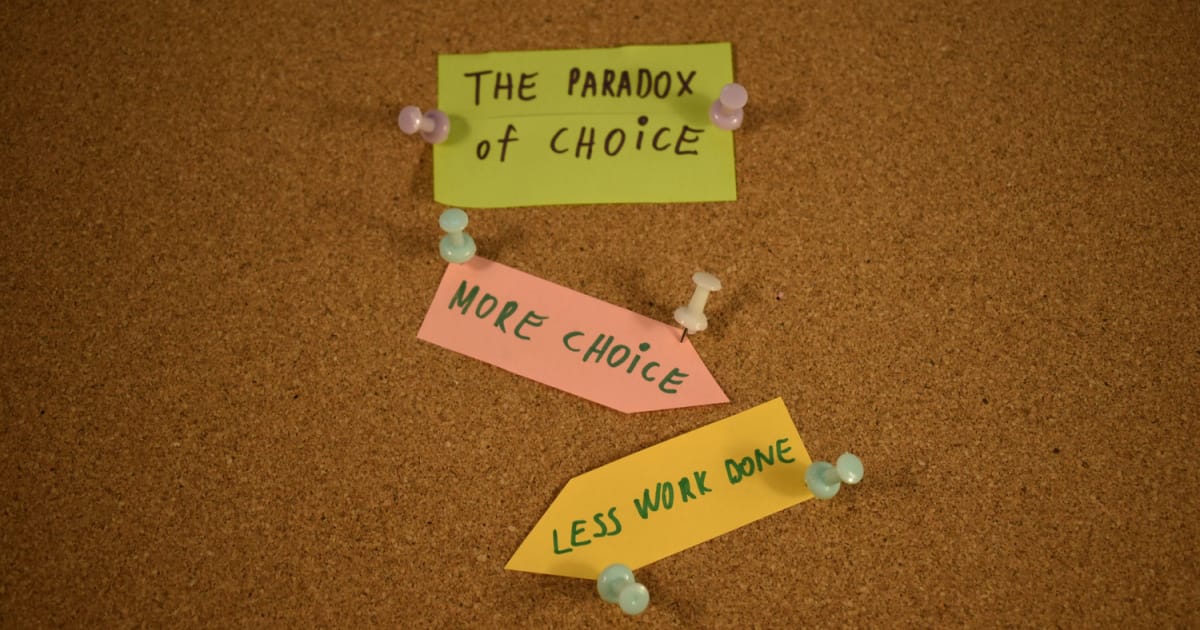
On top of that, we have endless sources of entertainment—TV, social media, instant messages, Netflix, PlayStation, and more—all available at any time, just a short button push away.
This abundance of options creates what is called the Paradox of Choice.
The paradox of choice refers to how having too many options can make it harder to make decisions, as our brains become overwhelmed. This overload can eventually lead to decision paralysis.
When we’re stuck in this state, it can debilitate and demotivate us. Unable to decide what to prioritise, we end up procrastinating on all the tasks of the day.
Thus, the Paradox of Choice can really throw a monkey wrench into productivity.
The Paradox of Choice, originally coined by American psychologist Barry Schwartz in the early 2000s, highlights how more options don’t always lead to better decisions. Instead, they can drain mental energy and create unnecessary hesitation.
Learning to train your brain to filter distractions and prioritise effectively can make all the difference.
This is where optimising mental clarity and decision-making becomes crucial. Jim Kwik’s Superbrain teaches techniques to process information faster, improve focus, and streamline choices—helping you cut through decision-overload and take action with confidence.
Final Words
We all share tendencies to stall in the face of procrastination.
Past pain, present paralysis, future fantasy—all intertwine to keep us stuck, but awareness and action can break the cycle.
These default traps confine us all at times. But self-knowledge and moving in baby steps eventually gets us closer to achieving our targets, slowly loosening procrastination’s grip.
Within today’s noisy society, when faced with procrastination, it can be useful to intentionally quiet your surroundings, limit multiple choices, and clarify the end goal behind each task.
Asking yourself questions like “What is best for future me?” can help you make the right decisions, especially when pressed for time or paralysed by a task.
And remember, the hardest part is starting. Once we begin a task, tension often eases rapidly, and we realise that the dreaded activity was miles easier than anticipated.
Professional Help
For some, procrastination may be rooted in more complex underlying conditions.
For instance, habitual procrastination is commonly linked to mental health problems, such as depression and anxiety.[9] If untreated, this may get worse over time, as depression and procrastination fuel one another, creating a negative emotional cycle.[10]
If you have any concerns that your procrastination might be due to depression, consider speaking to a doctor, counsellor, or advisor.
There are also many highly rated online services available.
Such as BetterHelp, rated as the best overall online therapy, eTherapyPro for same day appointments, BlahTherapy which is best for text therapy, and CIMHS provides free therapy specifically for depression.
Getting the right care plan in place could relieve procrastination stemming from an underlying health condition.


